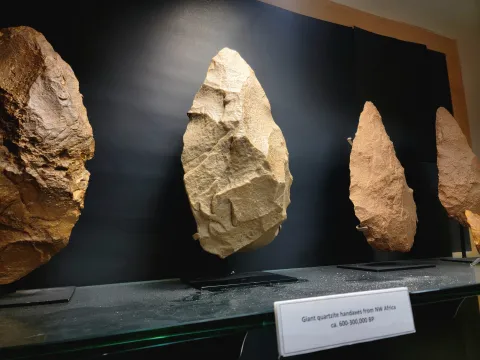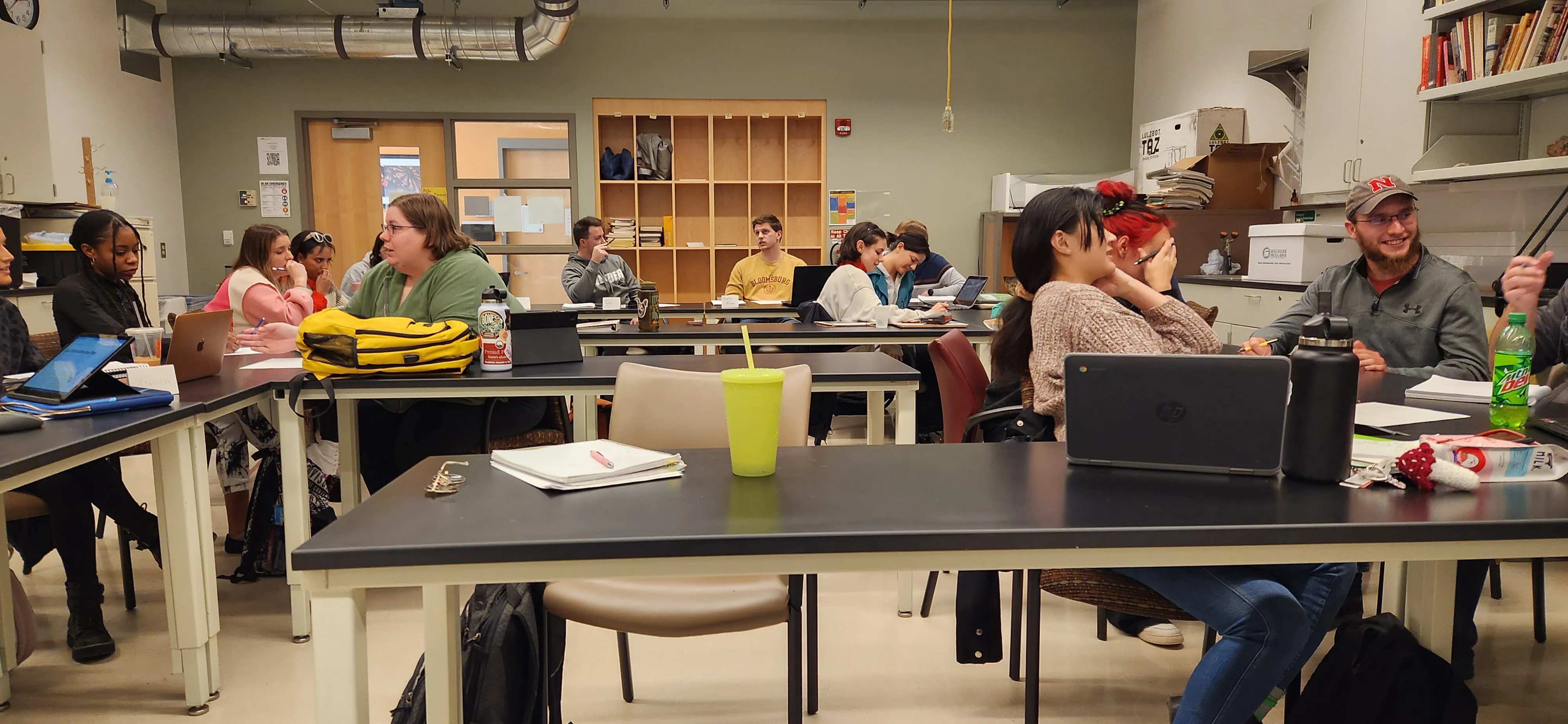
Degrees & Programs
The UCCS Department of Anthropology offers programs that emphasize critical thinking, research methods, collaborative approaches, and analytical skills.Master of Arts in Cultural Heritage and Environmental Resource Management (CHERM)
About the Degree Program
The CHERM program is a graduate degree that prepares students for careers in cultural heritage, environmental protection, sustainable resource management, and museum studies. The curriculum combines anthropology, geography, environmental science, and museum studies to give students a clear understanding of the connections between heritage and the environment.
Students may choose one of three areas of focus: Cultural Resource Management and Heritage, Environmental Resource Management, or Museum Studies. The program empowers graduates to become versatile leaders in the responsible management of cultural and environmental resources.
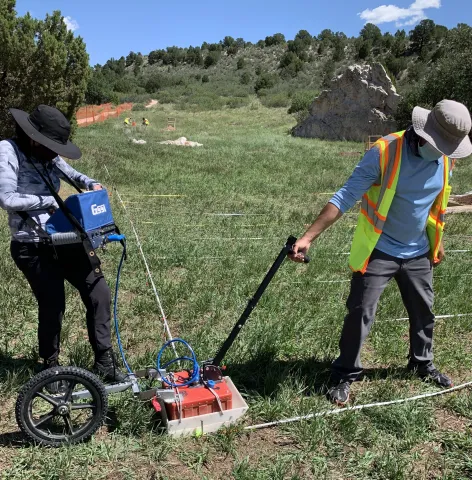
Bachelor of Arts in Anthropology
About the Degree Program
The undergraduate program enables students to concentrate in any one or more of the four main subfields of anthropology (archaeological anthropology, biological anthropology, cultural anthropology, or linguistic anthropology) through both theoretical and applied courses.
Our majors graduate with critical thinking skills and a strong grasp of interdisciplinary potential as well as hands-on experience in lab, field, and/or community outreach work.
For more information about individual courses, see the Anthropology Courses Website.
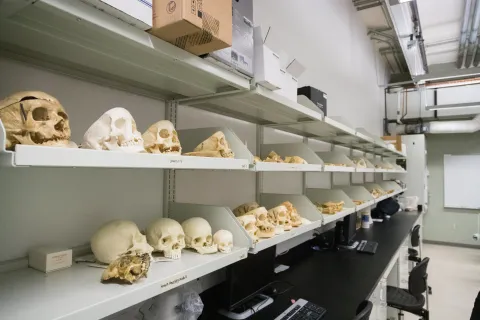
Bachelor of Innovation in Museum Practice and Heritage Management
About the Degree Program
The Bachelor of Innovation (BI) program combines academic studies and professional training to prepare students for a variety of careers in museums, galleries, science/historical/cultural centers, or similar institutions.
The major is composed of a Museum and Gallery Management core, Art History core, VAPA interdisciplinary classes, and LAS General Education courses and is structured for students to gain a depth of understanding about museum studies and art history and a breadth of other arts disciplines, business, and entrepreneurship.
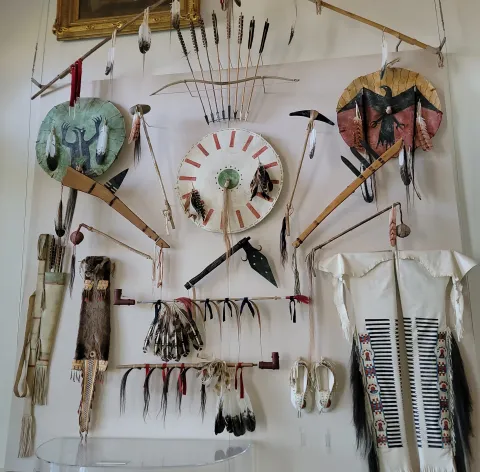
Bachelor of Arts Double Major in Anthropology and Women's & Ethnic Studies
About the Degree Program
The double major program with Women’s and Ethnic Studies (WEST) allows students to synthesize WEST’s intersectional approach to cultural responsiveness, critical thinking, and community engagement with Anthropology’s holistic approach to understanding human history, behavior, and society. The program encourages students to embrace these diverse methods to pursue pressing social questions through an interdisciplinary analysis of human life and the multivalent processes that shape culture, power, and social position.
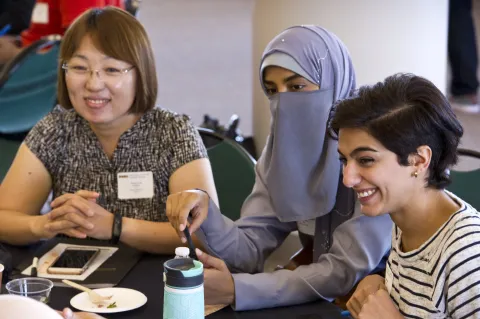
Minor in Anthropology
About the Anthropology Minor Program
The minor in Anthropology gives students an introduction to three of the four traditional subfields while allowing students to concentrate their studies in one of the four subfields:
- Archaeology
- Biological Anthropology
- Cultural Anthropology
- Linguistic Anthropology
This can be an excellent add-on to a related major that enhances student success in graduate studies or on the job market.
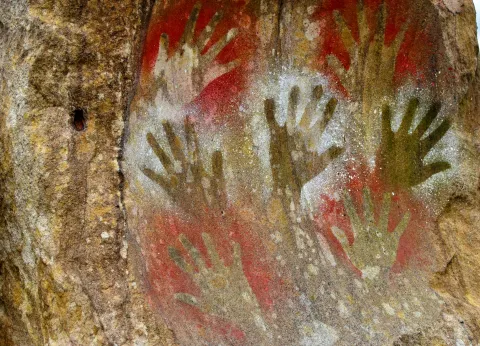
Interdisciplinary Linguistics Minor
About the Linguistics Minor Program
Housed in the Department of Anthropology, the Interdisciplinary Linguistics Minor incorporates coursework in linguistic anthropology, philosophy, English, and ASL with the opportunity to expand into history, communication, or Classics.
Students learn about many aspects of human language, one of the principal bases for human knowledge and social behavior.
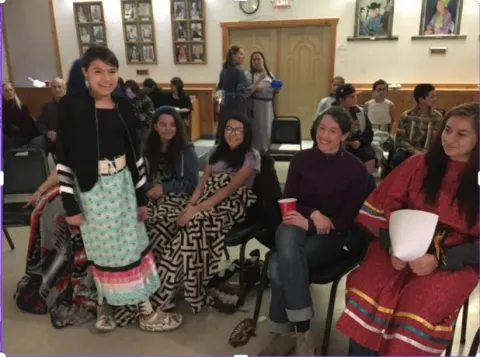
Cognitive Archaeology Certification
About the Certification Program
The UCCS Center for Cognitive Archaeology (CCA) offers undergraduate and graduate students the opportunity to study the evolutionary development of cognition in humans and other primates. Through 12 different online courses taught by UCCS faculty and international experts, students explore how the mind evolved and how cognitive processes are reflected in material culture.
Upon successful completion of any four courses, UCCS awards an official Certificate in Cognitive Archaeology at either the undergraduate or graduate level.
Visit the CCA Website to learn more about the program, explore available courses, and find additional resources for students and researchers.
